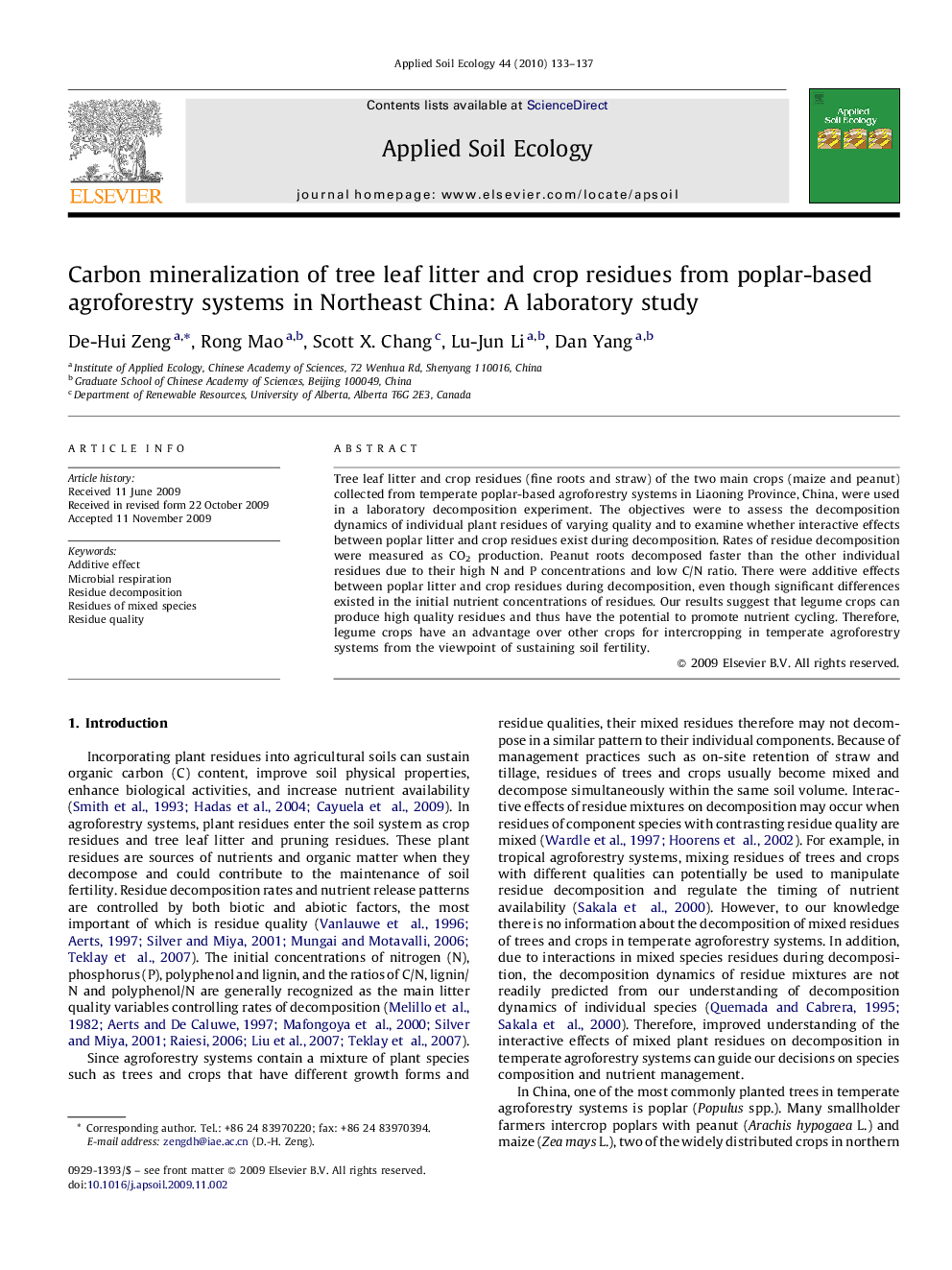| Article ID | Journal | Published Year | Pages | File Type |
|---|---|---|---|---|
| 4382913 | Applied Soil Ecology | 2010 | 5 Pages |
Tree leaf litter and crop residues (fine roots and straw) of the two main crops (maize and peanut) collected from temperate poplar-based agroforestry systems in Liaoning Province, China, were used in a laboratory decomposition experiment. The objectives were to assess the decomposition dynamics of individual plant residues of varying quality and to examine whether interactive effects between poplar litter and crop residues exist during decomposition. Rates of residue decomposition were measured as CO2 production. Peanut roots decomposed faster than the other individual residues due to their high N and P concentrations and low C/N ratio. There were additive effects between poplar litter and crop residues during decomposition, even though significant differences existed in the initial nutrient concentrations of residues. Our results suggest that legume crops can produce high quality residues and thus have the potential to promote nutrient cycling. Therefore, legume crops have an advantage over other crops for intercropping in temperate agroforestry systems from the viewpoint of sustaining soil fertility.
